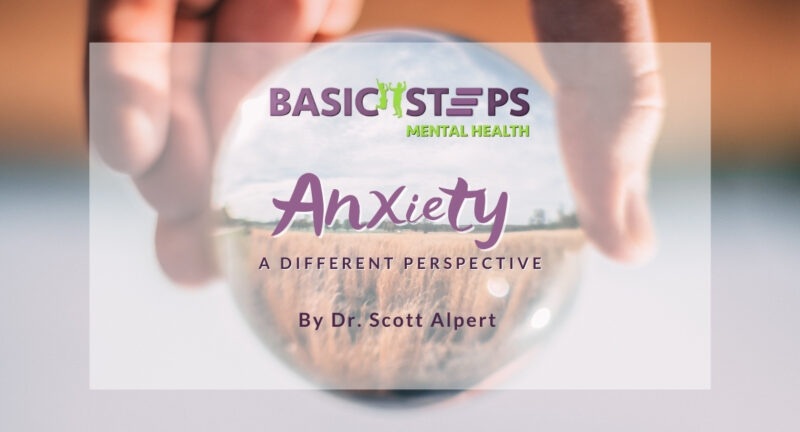
Substance Treatment
I was asked to write a note to a lawyer ensuring I was providing substance treatment to their client, so I thought I’d use this as an opportunity to draft something that I could have on my website.
My approach is different than 98% of the approaches out there because we focus on the core wounds underneath substance and mental health treatment. Ours is a program of empowerment, where people learn how to take charge of their innate power — and no, we are not powerless.
Basic Steps has a great success rate, but we are not perfect. Maybe 15% of the people we treat will relapse, and of those who return, many find good success — but not all of them recover. Why? Because people are in control of themselves.
When a person has a relapse — which we call a slip — it can be used as simple information. Since each person can be viewed as a gem with many facets, there is a lot of inner work that needs to be enacted — which is why intensive treatment is preferred. In our IOP program, it is conducted for a minimum of four weeks, three times a week, for three hours at a time. It is a big undertaking that requires the mutual agreement of both client and staff, but when a therapeutic bond is established, this work feels natural.
What is this exploration? Mostly the conditioning of family, friends, society, and their own life experience will paint the way each person views the world. They may learn something from us, but it will go through their filter, and they will use it according to their own desires. We have no control over this, nor do we want to. Many clients get inspired and become our teachers; others may dismiss the information and report that it is a waste of time. Thank God we haven’t seen any of that in recent years.
A few things that can be a detriment to treatment are undue stress, overwhelm, and anger. Boredom also gets an honorable mention. When we are operating normally, we have full access to the cognitive (mental) aspects of our brain. Under stress or anger, this access stops, and we are no longer logical; instead, we operate on instinct and survival, which leads to making bad decisions.
I guess, like most facilities, we feel ours is the best. Why not? Because the program changed my life in incredible ways, I am confident in what we provide and can sleep well at night. In order to keep proving the superiority of our evidence-based approach, we continue to refine it, go through continuing education, and hold staff meetings and group discussions. Our crew is licensed or being supervised by myself. I am a Doctor of Clinical Psychology and have been licensed in both mental health and substance treatment services by the state of Washington since 2012, and before this, I was licensed in the state of California. I worked at the first Mental Health Urgent Care Center, and after also working at one of the luxury residential treatment centers in Malibu, I have seen my fair share of clients from all walks of life — and they have all impacted me profoundly, which only enhances how this facility operates.
In 2013, my residential treatment program opened on San Juan Island — which was totally a non-12-step facility that practiced Spiritual Psychology. Oh, don’t get me wrong, Spiritual Psychology is clinical in nature and may fool some people who believe it is all about prayer and meditation. No, there are some elements of this, but our focus is on the underlying core issues that are at the root of the problem.
Why am I so confident in our approach? Because it worked on me. In graduate school, we students counseled each other, and all of us were profoundly healed.
Both our substance treatment and mental health treatment are combined because the focus of both is to address core wounds that lie beneath substance use and mental illness. It is conducted like the school I attended, where participants are trained to be counselors. The premise is: what you teach, you learn, and since all of us in school were healing, then why not clients? Plus, it is often seen that talking to a friend can be more healing than talking to a trained professional.
Spiritual Psychology
We operate on the physical, mental, emotional, and spiritual levels. Spiritually speaking, there are reasons why we face the same challenges over and over again. By perfecting our behaviors, thoughts, and emotions, we thrive.
Physical –
We all deal with our physical body each day, but are we taking care of what we put in our body, exercising, sleeping well, and relaxing? This is the easy part (as if staying sober is easy).
Mental –
How many negative thoughts do you have in a day? Since we average 20,000 to 80,000 thoughts a day, how many of them are beneficial? In addressing the logic of our thinking, breaking negative/repetitive thoughts, and making our thoughts more functional, this work can feel like a full-time job. Work at our facility takes a good look at the rules by which you live and how to amend them. But this is only one-fourth of the picture.
Emotional –
At the heart of the Spiritual Psychology approach is working on our inner self. Do you like yourself? Do you make others more important? What is your purpose? How are you in relationships? Did you realize that your relationships mirror how you are with yourself?
Spiritual Psychology has a healing formula: “When love is applied to hurt, we heal.” No other psychological approaches claim this. For example, Gestalt therapy believes that when you see an issue from different angles, you get an Ah Ha moment. This assumes that you heal, but after the Ah Ha, then what? Spiritual Psychology continues with the part that goes Ah Ha, processes it more by simply applying love to the newly discovered aspect of yourself, and incorporates it into the whole.
NOTE: Psychology is the science of relationships. Our relationships with others mirror our relationship with ourselves. Therefore, in our program, the relationship with yourself is highlighted, and many exercises are conducted to enhance the relationship the person has with themselves.
Think about this — if you really loved yourself, like a parent loves their child, wouldn’t you do everything possible to protect and care for them? This is the underlying focus of our work at Basic Steps Mental Health. And no, this isn’t about making people narcissists.
I often ask people if they would pour alcohol down a child’s throat or give a toddler a cigarette to smoke. Then why are they doing so to themselves?
Spiritual –
We are all on our own special life path. If something continues to show up again and again, it is important to face it properly, or it will continue to present itself. Thus, the law of attraction. In processing the problems of our past, we grow at the level of the soul. Thus, Spiritual Psychology is really soul-centered treatment.
Yes, there is a new face to substance and mental health treatment—one that cares for ourselves on all levels and finds mental and emotional solutions to what has confronted us for days, if not decades.
I remember being scared when I entered the University of Santa Monica, a graduate-level school that taught Spiritual Psychology. I sat way in the back of the auditorium and looked toward the front stage where my teachers, Ron and Mary Hulnick, sat. I freaked out, thinking I saw ghosts! Both of them were the spitting images of my grandparents! Well, this showed me I was in the right place, so I dug in and prepared to have my mind blown! When I left there four years later, I was a seasoned therapist ready to take on the world.
Compassionate Care is Always Available
There are many more tools and strategies you can use in your pursuit of happiness. Here is where we come in. Contact us at Basic Steps Mental Health and let us support and educate you on this journey back to your loving heart center. Imagine living a heart-centered life, regardless of what is happening externally. We’d love to be of help.
For 25 years, Dr. Scott Alpert, the clinical director of Basic Steps Mental Health, has treated over 7,000 people with mental health and addiction problems, using a Psychological approach that mixes and matches ten of the top approaches used in the industry. We are here virtually and in-person to help you get through this COVID-19 pandemic and many other difficulties you may be experiencing.
May you have good mental health.
Related Posts
Anxiety – A Different Perspective
Anxiety, even the word causes us to hold our breath. Did you know that holding...
Befriending Bipolar
Bipolar Disorder has its ups and downs. Actually, that is the definition of...




